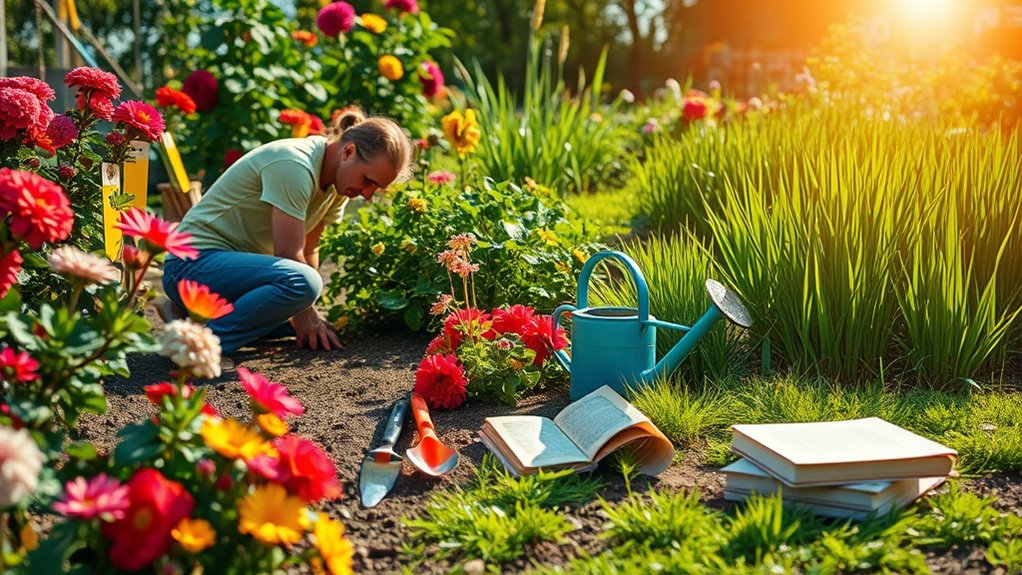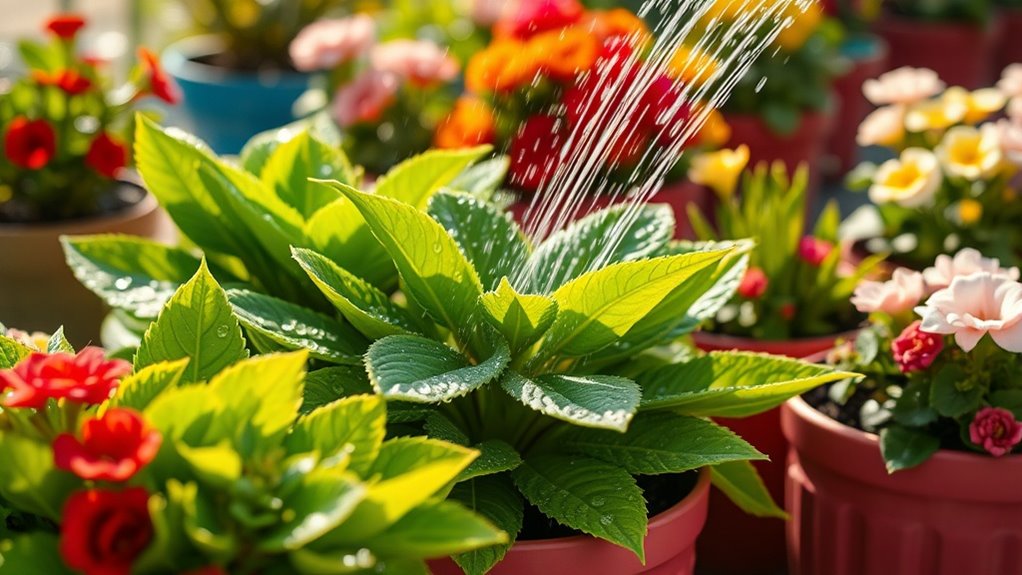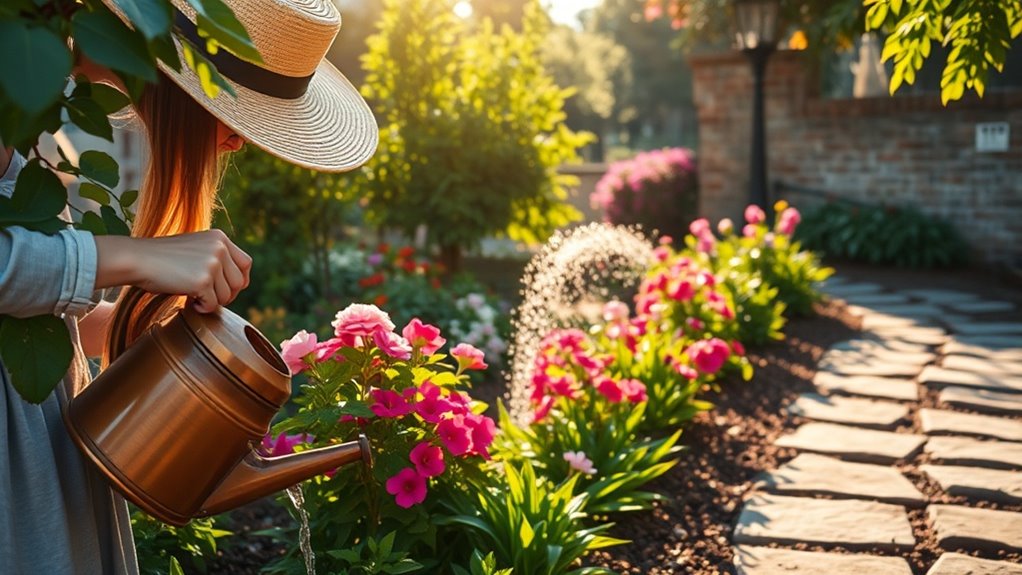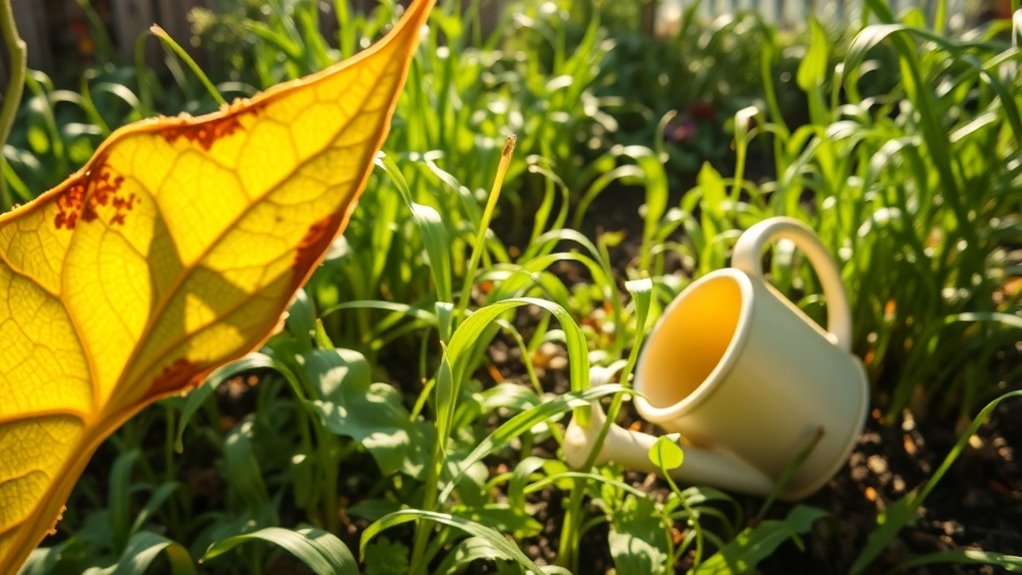Debunking 5 Garden Myths That Waste Your Time and Money
Are organic fertilizers truly superior to their synthetic counterparts, or is that just a common misconception? Many gardeners operate under certain myths that can lead to wasted resources and ineffective practices. Understanding the truth behind these theories can significantly enhance your gardening efficiency and success. Let’s explore some prevalent beliefs that might be costing you time and money.
Key Takeaways
- Organic fertilizers are not always superior; synthetic options can provide quicker nutrient delivery tailored to specific plant needs and soil types.
- Daily watering is unnecessary; deep watering once or twice a week promotes healthier root growth and avoids overwatering issues.
- Not all pests are harmful; beneficial insects like ladybugs and bees contribute positively to plant health and ecological balance.
- Mulching should be done year-round, as it insulates roots, retains moisture, suppresses weeds, and enriches the soil over time.
- Excess sunlight can damage plants, leading to dehydration and pest attraction; balance is key for optimal growth.
Myth 1: Organic Fertilizers Are Always Better Than Synthetic Ones
While many gardeners believe that organic fertilizers are inherently superior to synthetic options, this isn’t always the case. One common garden myth is that organic fertilizers provide a guaranteed advantage.
In reality, synthetic fertilizers can deliver nutrients more quickly and efficiently, which is crucial in specific situations. Organic options often take longer to break down, potentially delaying nutrient availability.
Additionally, the effectiveness of any fertilizer depends on your soil type and specific plant needs. Ultimately, understanding the nuances of both options helps you make informed choices, ensuring your garden thrives regardless of the fertilizer type you choose. It’s also important to consider that certain soil types can significantly influence the performance of fertilizers, further complicating the decision-making process.
Myth 2: You Need to Water Your Garden Every Day
Many gardeners believe that watering their plants daily is essential for healthy growth, but this isn’t necessarily true.
Overwatering can lead to root rot and other issues, as plants need time to absorb moisture.
Instead of a daily routine, assess your garden’s specific needs by checking soil moisture.
Factors like plant type, weather, and soil drainage play significant roles.
Generally, deep watering once or twice a week encourages deeper root growth.
Adopting this approach not only conserves water but also saves you time and money while promoting a healthier garden ecosystem.
In fact, understanding the detrimental effects of overwatering can help you make informed decisions about your watering habits.
Tailor your watering schedule for optimal results.
Myth 3: All Pests Are Bad for Your Garden
Have you ever considered that not all pests are detrimental to your garden?
In fact, some pests play crucial roles in maintaining ecological balance.
Recognizing the benefits can save you time and money.
Consider these points:
- Pollinators: Certain pests, like bees, help your plants thrive by pollinating flowers.
- Natural Predators: Beneficial insects, such as ladybugs, control harmful pest populations.
- Soil Aeration: Some pests, like earthworms, improve soil health by aerating it.
- Biodiversity: A mix of species fosters a resilient ecosystem, reducing disease risks.
Additionally, some beneficial weeds can enhance garden health by improving soil quality and attracting beneficial insects.
Understanding this can transform your gardening approach and enhance your garden’s health.
Myth 4: Mulching Is Only Necessary in the Summer
Why do so many gardeners believe mulching is only important during the summer months?
This myth overlooks the benefits of mulching in other seasons.
In winter, mulch insulates the soil, protecting plant roots from freezing temperatures.
In spring and fall, it suppresses weeds and retains moisture, reducing the need for frequent watering.
Mulch also breaks down over time, enriching the soil with nutrients.
By applying mulch year-round, you create a healthier garden ecosystem. Additionally, soil health is vital for the overall success of your garden, making consistent mulching even more essential.
Don’t limit your mulching practices to the warmer months; instead, consider it a year-long strategy for maintaining soil health and supporting plant vitality.
Myth 5: More Sunlight Equals Healthier Plants
Is it really true that the more sunlight your plants receive, the healthier they’ll be? Not necessarily.
While sunlight is vital, too much can lead to stress and damage.
Each plant has its own light requirements, and oversaturation can stunt growth.
Consider these factors:
- Leaf scorch: Excess sun can burn leaves, causing irreversible damage.
- Water loss: Increased evaporation can lead to dehydration.
- Pest attraction: Stressed plants may attract pests seeking easy targets.
- Nutrient imbalance: Overexposure can interfere with a plant’s ability to absorb nutrients.
In fact, understanding light requirements is essential for ensuring optimal plant health.
Balance is key; understanding your plants’ needs will yield healthier growth.





